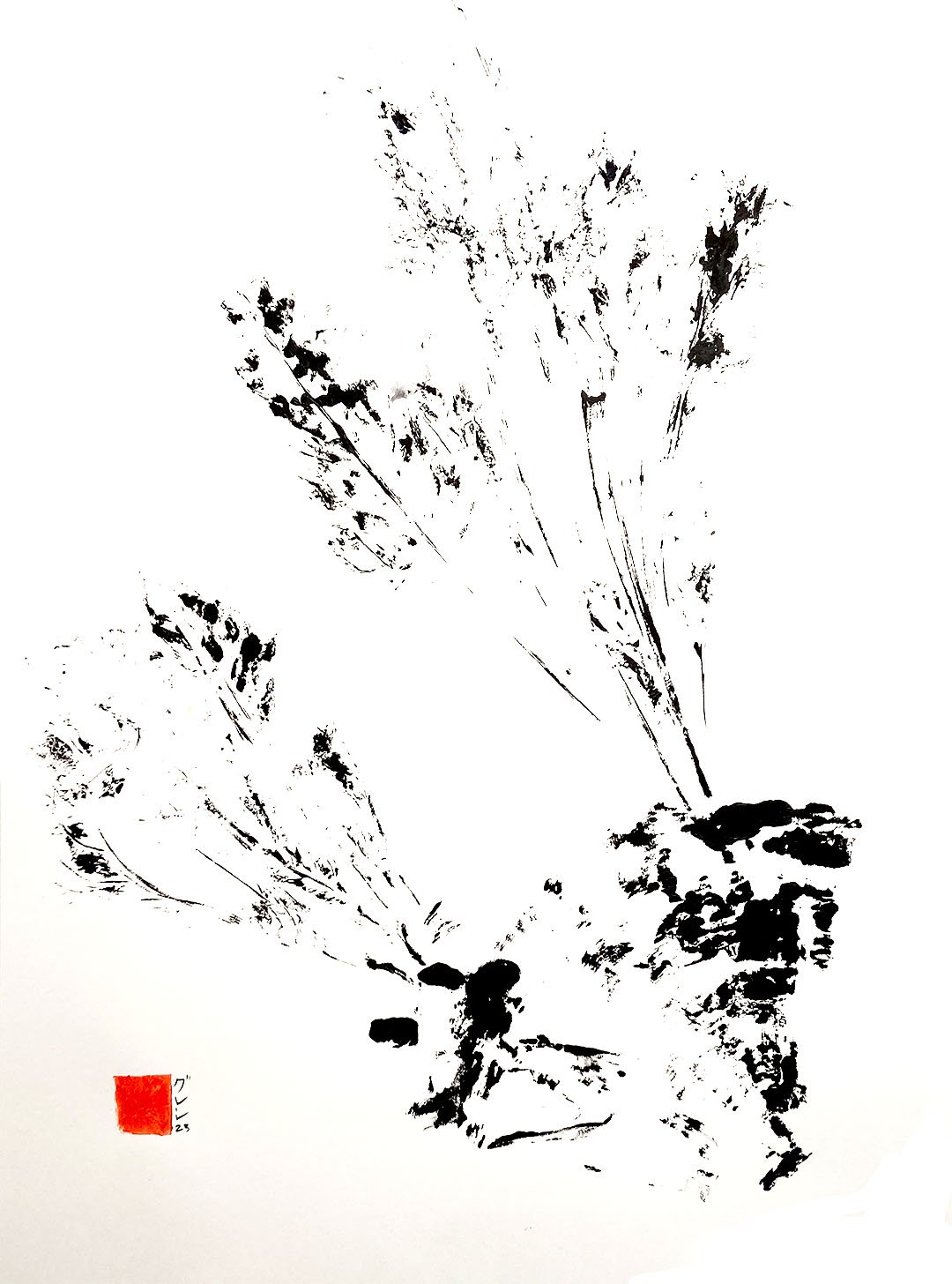Kanakana (2023)
Kanakana was a solo exhibition at Rogers Studio Gallery in Las Vegas, NV, which received its first public showing on January 19, 2023. The exhibition consisted of a single-channel video work, a series of twenty prints, and a short choreographic work. Kanakana was developed through a Rogers Art Loft residency with additional support from the Rogers Foundation.
Named after the Japanese onomatopoeia for the sound a cicada makes, Kanakana is a consideration of the cycles of intergenerational grief for Japanese-Americans after the World War II internment/concentration/prison camps. Similar to how cicada broods appear in predictable cycles, the trauma of the internment camps can predictably manifest in the people descended from the Camp generations. In this collection of works, Potter-Takata uses video, performance, and printmaking as a form of dialogue with his antecedents.
Kanakana, 2023
Single-Channel Video
Glenn Potter-Takata, a fourth-generation Japanese-American, portrays Phil Tajitsu Nash, a third-generation Japanese-American lawyer, professor, and activist who advocated for reparations during the 1986 congressional hearing on H.R. 442, the House bill that eventually led to redress for Japanese-Americans. Potter-Takata body-syncs with and gives voice to Nash’s movements and words to embody Nash’s firsthand experience in front of the congressional committee.
Wyoming (I’ve never been there), 2023
Acrylic on paper
Wyoming (I’ve never been there) is a series of prints made after the gyotaku style of printmaking from Japan. Gyotaku is traditionally done by fishermen, who brush ink onto their catch and rub its shape and texture onto a piece of paper. The practice is both a way to memorialize a catch and an artistic pursuit in its own right. Potter-Takata replaces the fish with sugar beets.
The series is part of a dialogue that Potter-Takata is having with an old family friend, who was interned at the Heart Mountain Relocation Center in Wyoming. While at Camp, the family friend was drafted and resisted the draft as a form of protest on the grounds of being robbed of his basic Constitutional rights. He was subsequently convicted as a felon and imprisoned at McNeil Island Penitentiary in Washington until he was exonerated by President Truman in 1947. While waiting for his court date, he applied for and received a permit to work at a nearby farm harvesting sugar beets to pay for the lawyer fees.






